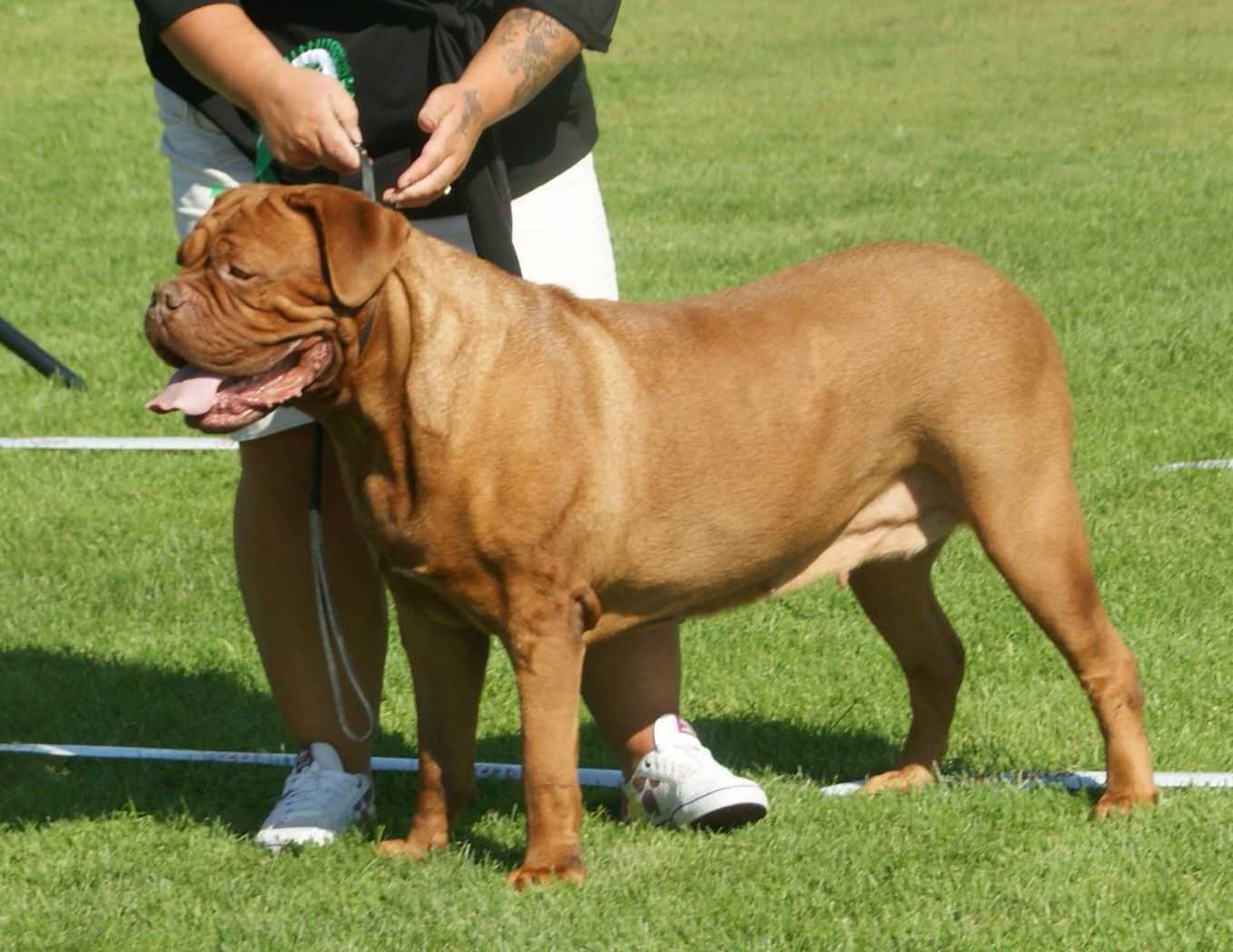Dogue De Bordeaux Facts For Kids
The Dogue de Bordeaux is a large, powerful breed known for its loyalty, strength, and gentle nature, making it an excellent companion for families.
Set reading age
View for Kids
Easy to read and understand
View for Students
Clear, detailed explanations
View for Scholars
Deep dives and big ideas
Introduction
The Dogue de Bordeaux, also known as the Bordeaux Mastiff, is a big and strong dog breed from France 🇫🇷. They are famous for their wrinkled face and powerful build. These dogs typically weigh between 99 to 150 pounds (45 to 68 kg) and stand about 23 to 27 inches (58 to 69 cm) tall at the shoulder. With their short, reddish-brown coats, they are both impressive and gentle. The Dogue is known for being loyal and protective, making them great family pets! They need exercise, love, and attention to be happy and healthy. 🐶❤️
Gallery of Dogue De Bordeaux Facts For Kids
History And Origin
The Dogue de Bordeaux has a rich history that goes back over 600 years! 🕰️ They originally came from the Bordeaux region of France. They were used as working dogs on farms to guard livestock and help with hunting. Farmers admired their strength and bravery. During ancient times, they even fought alongside soldiers! This breed is one of the oldest in France and has roots mixing with breeds like the English Mastiff. So, they are truly special dogs with a story to tell! 📜🐾
Care And Maintenance
Taking care of a Dogue de Bordeaux requires time and effort! 🕒They have short coats that don't need a lot of grooming, but brushing them once a week keeps their fur healthy. They also need regular exercise, like walks and playtime, to stay fit and happy! These dogs love spending time with their families, so including them in activities is important. 🏞️ Also, giving them a special place to sleep, and fresh water daily is vital for their comfort and health.
Health Considerations
Like all dogs, Dogue de Bordeaux can have health problems. Some common issues include hip dysplasia, which affects their joints, and heart problems like cardiomyopathy. 🩺It's essential to take them to the vet for regular check-ups. Keeping an eye on their weight is also important, as they can easily become overweight. A balanced diet and lots of exercises can help them stay healthy and energetic! Taking good care of these dogs helps them live longer, happier lives. 🐶💚
Famous Dogue De Bordeaux
One famous Dogue de Bordeaux is Hooch from "Turner & Hooch." 🐾 This playful dog won the hearts of many movie fans! Additionally, some Dogue de Bordeaux have served as therapy dogs, helping people feel better with their affectionate personalities. 🥰They are also known to have participated in dog shows and won many awards. Their strength and loving nature make them stand out not just in movies but also in real life! 🌍
Physical Characteristics
The Dogue de Bordeaux is known for its unique appearance. They have a hefty, muscular body and a large head with deep wrinkles. Their ears hang down, and they have bright, expressive eyes that show their gentle nature. 🐕Their coat is short and smooth, often in shades of fawn or mahogany. Usually, they have white markings on their chest and paws. They have strong legs and a thick neck, making them look quite powerful! This breed’s size and strength make them really stand out in the dog world. 🌟
Temperament And Behavior
One of the best traits of the Dogue de Bordeaux is its friendly and loving nature. ❤️ They are known to be gentle giants and very good with children! They are protective of their families and can be quite serious when they sense danger. Although they look tough, they are also very playful and enjoy spending time with their human friends! 🐾It's important to socialize them early so they learn to be friendly with other pets and people. With the right care, they become wonderful companions for families.
Training And Socialization
Training a Dogue de Bordeaux is key to having a well-behaved pet! 🐕These dogs are intelligent and can learn quickly, but they sometimes can be stubborn. Positive reinforcement, like treats and praise, works best for training them! It's important to start training and socialization when they are young puppies. This helps them get used to new people, places, and other animals! Early socialization helps them become friendly and confident adults. 🌟Each day spent training or playing reinforces the bond between a Dogue and its family.
Dogue De Bordeaux In Popular Culture
Dogue de Bordeaux has made appearances in movies and TV shows! 🎬For example, in the movie "Turner & Hooch," a Dogue played the role of Hooch, a funny and loyal companion to a policeman! 🐕This made many people fall in love with this breed! They are often featured in commercials and media because of their unique looks and charming personalities. Their popularity continues to grow, and more families want to adopt these wonderful dogs!
Dogue De Bordeaux Facts For Kids Quiz


Make things. Learn new skills. Share safely.
DIY is a creative community where kids draw, build, explore ideas, and share.
No credit card required

